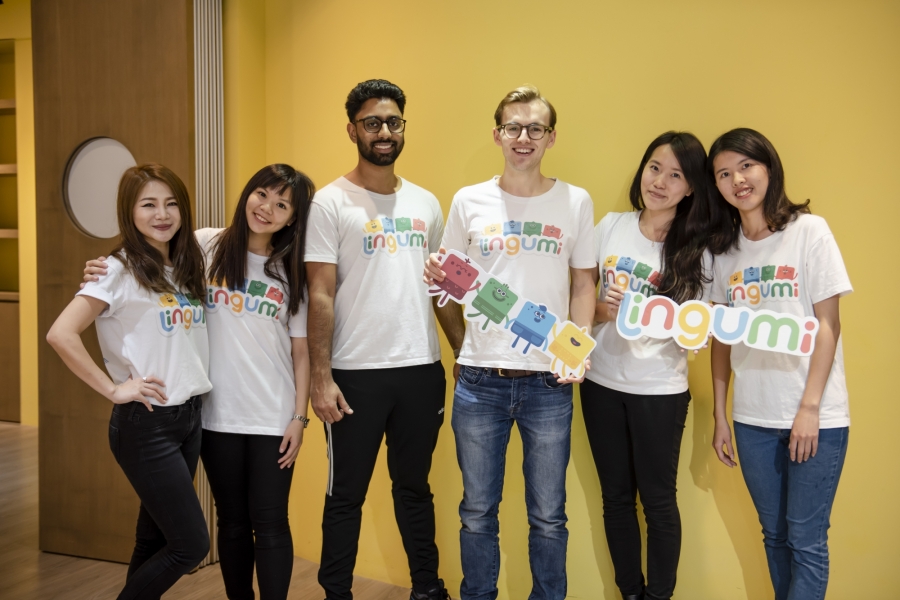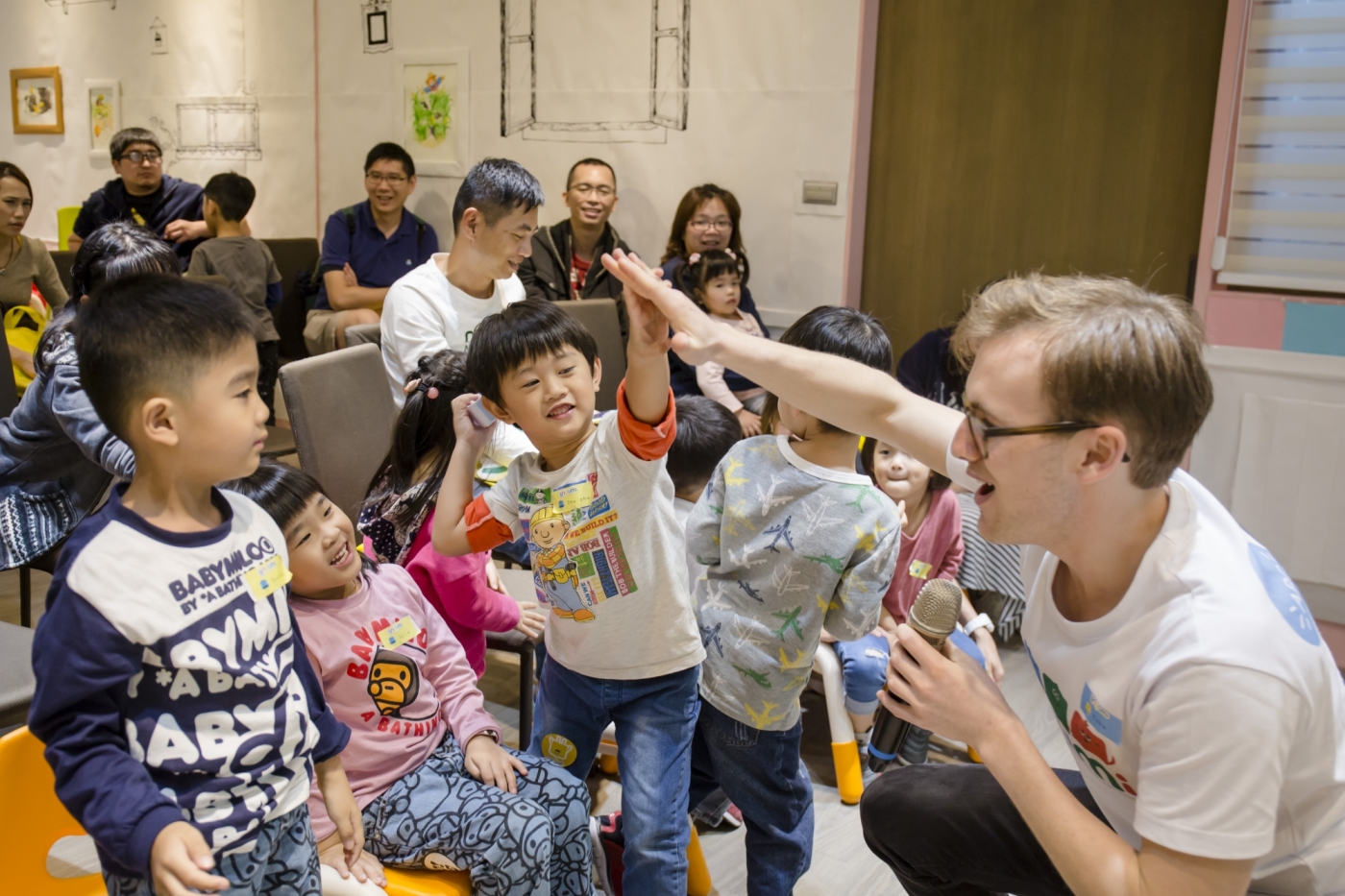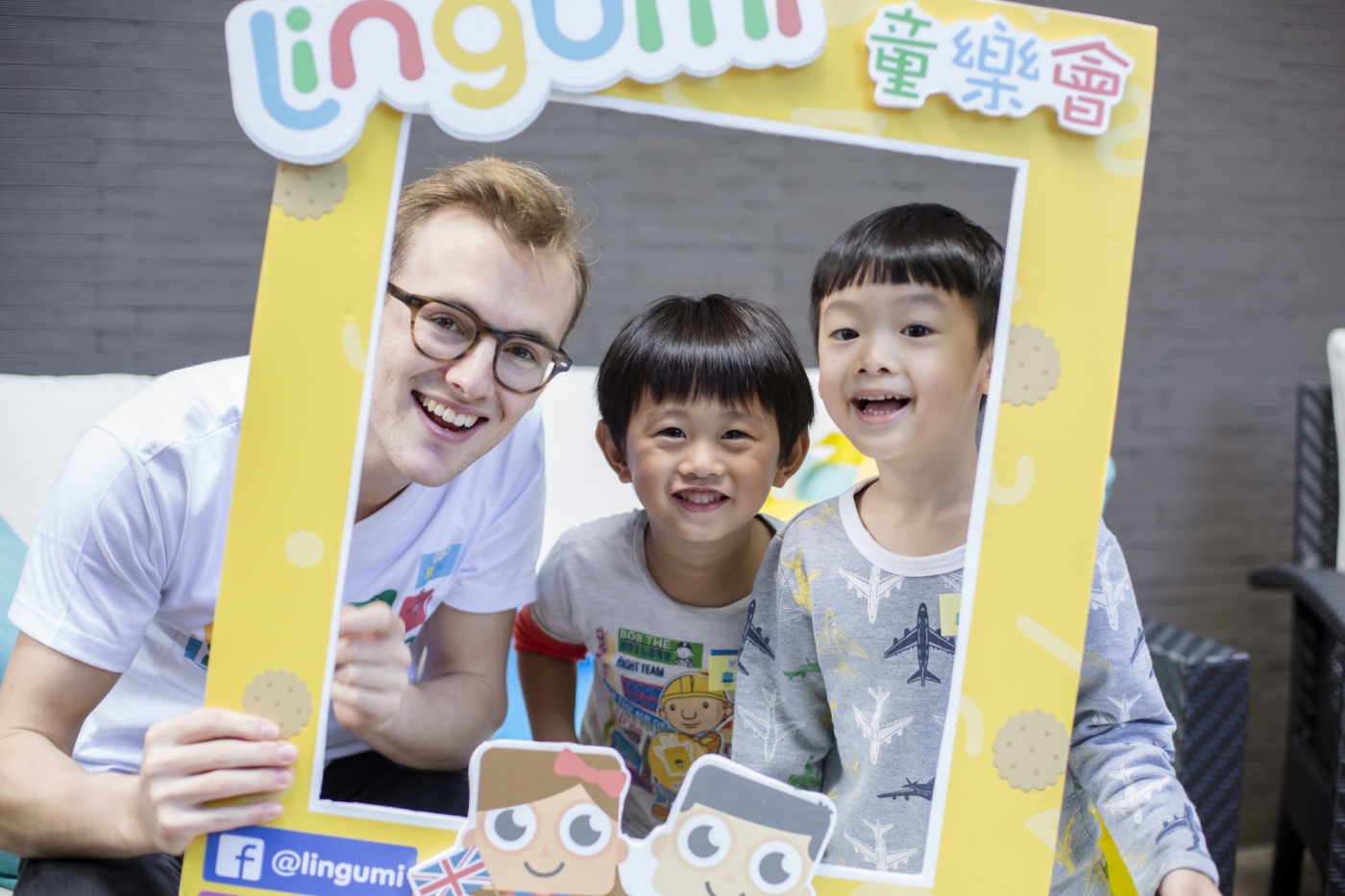AI-powered edtech startup Lingumi passes user milestone in Taiwan

Since entering the Taiwanese market in 2018, Lingumi has seen rapid user growth and as of today, more than 10% of Taiwanese parents have already registered for Lingumi.
As a member of the Garage+ startup network which is founded by the Epoch Foundation, Lingumi is an edtech startup that focuses on teaching foundational English to children between 2-6 years old with interactive learning games and lessons.
Since entering the Taiwanese market in 2018, Lingumi has seen rapid user growth and as of today, more than 10% of Taiwanese parents have already registered for Lingumi.
The company is also growing fast in many other Asian markets that include China, Indonesia, Philippines, Japan and South Korea, but “Taiwan is the market where we have the biggest brand identity,” said Toby Mather, Founder & CEO of Lingumi.
Initially, the startup focused on the EU market and taught English to children in Germany by building an interactive toy. But as the company pivoted to a software-only business, Toby saw the potential in Chinese-speaking markets, especially Taiwan, because of its strong market for learning English, and how Taiwanese parents place a great deal of importance on their children’s education.
A 'magic window' for children to learn English
Inspiration can strike anywhere and for Toby, it came about during his year abroad from Oxford University. During his studies, he spent a year teaching English to primary school children between 6-7 years old in Russia and Italy. It was during this time he saw that children who begin learning English in big groups, experience difficulty learning the words, accent, and structures of the English language.
He began researching ways on how to help children build a strong foundation in English before they even enter the classroom for the first time. His research back at Oxford showed that in early childhood, there is a 'magic window', between ages 2-6, when children can more easily learn foreign languages, and their accents.
With a passion for teaching, Toby saw an opportunity where he could make a difference while doing something he loves. He founded Lingumi with the goal of making English learning fun and effective for preschool children, and importantly, it also has to be affordable and accessible for all. “What I care most about in the world, is I think that there's a very uneven or unequal access to the skills that really matter for a child,” said Toby.
Making digital teaching experiences feel more human with AI
Lingumi uses an asynchronous teaching model and offers daily English lessons, interactive learning games, speech recognition games and video-based tasks to help with a child’s English learning. It leverages AI voice recognition technology to help children learn to say new words and phrases while improving their accents and pronunciations. AI also plays an important role in helping smooth the conversational flow that the child has with the teacher during lessons. Toby said this is an area of AI application they are investing a lot of effort in because the most important way they use AI is to make the speaking experience feel as human as possible.
The interactive teaching experience needs to feel human because Toby believes that the thing that is most central to education is the teacher and student relationship.
Speaking from his own experience of meeting his English teacher when he was 8 years old, Toby said the teacher changed his life. “I think for a child, if you give them one incredible teacher, it can really change their life, both emotionally and in terms of the skills they acquire through that teacher, that gives them the confidence to want to learn, but also gives them the actual skills they need. I don’t think a TV show, a YouTube video or a cartoon can do that in the same way. What we try to do that's different in the digital space, is to bring the magic of human teaching to your child.”

"I think for a child, if you give them one incredible teacher, it can really change their life," said Toby. / Photograph: Lingumi
Localizing content to meet the needs of young learners in Taiwan
Taiwan is currently one of Lingumi’s biggest markets, so when it comes to content creation, the company is focused on making specific content that is relevant and useful for families in Taiwan.
For example, Toby shared that the way preschoolers learn English is basically the same around the world but as children get older, they start to think more in their first language.

Understanding how a Taiwanese child thinks through their first language allows Lingumi to design learning materials that meet the needs of young learners in Taiwan. / Photograph: Lingumi
So a 5 or 6 year old Taiwanese child will already start thinking through the lens of their first language because the structure of language is more tied to the first language. Taking this into account, we will understand why when an Italian child or German child learns English, they would naturally be able to use plurals and say for example, “two dogs”, whereas a Taiwanese child might say “two dog”. Understanding how a Taiwanese child thinks through their first language allows Lingumi to design learning materials that meet the needs of young learners in Taiwan.
As someone who loves to learn languages, Toby is currently learning Chinese which he considers as “one of the toughest challenges for a language learner.” Chinese is not an easy language to learn but Toby said it is important to learn this language if he wants to better engage at the local level with users in Taiwan. “I make a lot of videos for marketing, where I’m speaking Chinese and I want to just do that in an authentic way.”
Before the pandemic hit, Toby has traveled to Taiwan numerous times to meet families who use Lingumi. As for the future, Toby said that he would like to come back and visit more as he has loved every experience he had in Taiwan. “I do want to travel a lot more and come back to Taiwan a lot more frequently. Because for me, that is a very important way to connect to our customers to understand what they need from us. And that's how we build a better product — by listening to what our families want.”
〔Original :Meet Global〕
https://meet-global.bnext.com.tw/articles/view/47559